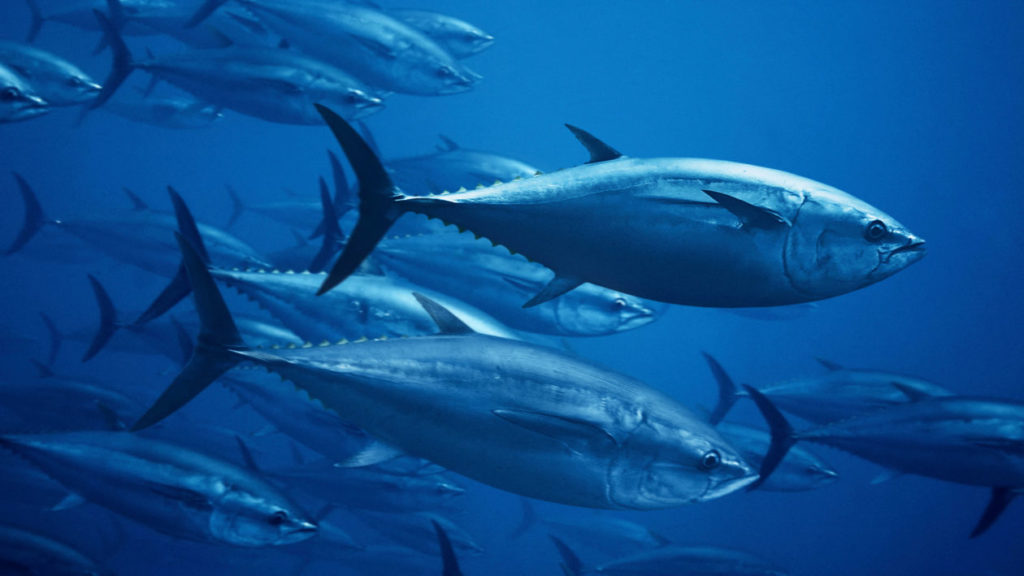Today in the Sixth Extinction

The important thing to note about seafood is that it is the last wild food that is consumed as a mass market product. And the inability to create rules that regulate the tuna fishery will go far to drive this iconic species into the past tense.
The Pew Charitable Trusts expressed concern today after the annual meeting of the Inter-American Tropical Tuna Commission (IATTC) ended Friday with no consensus on management for tropical tunas, leaving billions of dollars of potential catch without rules starting Jan. 1.
IATTC—a regional fisheries management organization (RFMO) responsible for the governance of tropical tunas, including bigeye, skipjack, and yellowfin, in the eastern Pacific Ocean—could not come to agreement on a measure for 2021 and instead will allow unregulated fishing for these species. This could jeopardize not only the status of these stocks but also the public’s confidence in IATTC’s ability to manage them. In addition, the future of current or potential Marine Stewardship Council-certified tropical tuna fisheries in these waters, as well as other eco label designations, is now uncertain.
Because of the COVID-19 pandemic, RFMOs have had to move their meetings online. Yet IATTC was able to make critical progress towards electronic monitoring, a much-needed step to help improve oversight of fishing vessel activity—demonstrating that, even during virtual meetings, governments can reach important agreements.
But after a week of negotiations, IATTC could not fulfill its primary fisheries management mandate.
Amanda Nickson, director of international fisheries for The Pew Charitable Trusts, issued the following statement:
“For the first time in its 70-year history, the Inter-American Tropical Tuna Commission has completely withdrawn from management of tropical tunas.
“To remedy this abdication of responsibility, IATTC and its member governments should immediately schedule a special session to set rules for 2021.
“Unless IATTC takes this emergency action, starting Jan. 1 there will be no rules governing when or where fishing for valuable skipjack, yellowfin, or bigeye tuna occurs; no restrictions on what gear can be used; and no consequences for the resulting harm that may occur.
Here is more on the abject failures of the regulatory bodies in charge.
And please, stop with the “tragedy of the commons” nonsense. Not only is that entire structure basically back of the cocktail napkin drunken pontificating, but it completely ignores the very specific choices governments have made on these issues, including on this tuna problem. As the historian of the oceans Carmel Finley has explored in depth in her books, these are policy choices, not some philosophical argument based around what no one can see and regulate. It’s a huge cop out that serves to shrug our shoulders at the massive policy failures at play.


